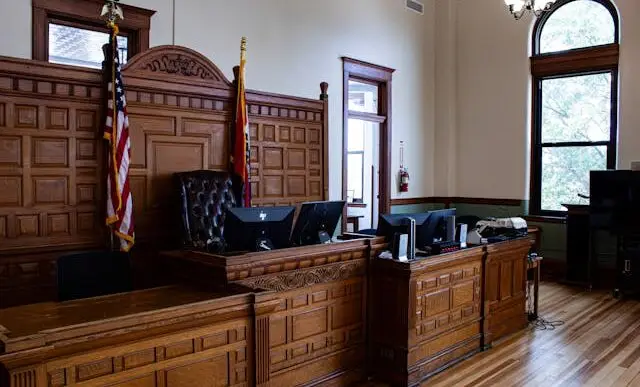Killer mom Susan Smith denied parole 30 years after drowning sons
Susan Smith Denied Parole After Three Decades
30 years have passed since the chilling, heartbreaking crime that shocked the United States and made international headlines. Susan Smith, the South Carolina mother convicted of drowning her two young sons, appeared in front of a parole board on Wednesday morning for the first time since her incarceration. However, the board ruled against her appeal for freedom, a decision that reflects the enduring gravity of her ghastly crime.
In the quiet town of Union, South Carolina, in 1994, Smith had reported her sons, 3-year-old Michael and 14-month-old Alexander, as kidnapped during a carjacking. This prompted a nationwide manhunt, gripping the country in a state of fear and concern. Nine days later, Smith confessed to the crime: she had strapped her two sons into their car seats and rolled her vehicle into a lake, drowning them both. The news stunned the nation and led to her life imprisonment sentence in 1995.
A Symbol of Maternal Betrayal
Smith’s case is still remembered as one of the most shocking instances of maternal betrayal in recent memory. The crime was not only a severe violation of the mother-child bond but also a stark reminder of the potential darkness lurking within seemingly ordinary individuals.
Smith initially claimed that a black man had hijacked her car and driven away with her sons. This lie not only sparked a nationwide search for the fictitious carjacker but also inflamed racial tensions. When she eventually confessed to the crime, the revelation sent shockwaves throughout the nation.
In court, Smith’s defense team presented her as a victim of a troubled past, citing her history of depression and suicide attempts. Despite this, the jury convicted her of two counts of murder, and she was sentenced to life in prison with the possibility of parole after 30 years.
First Parole Hearing
Wednesday marked the first time that Smith had the opportunity to seek parole. She appeared before a parole board to plead her case for release. During the hearing, the parole board considered several factors, including Smith’s behavior in prison, her mental and emotional state, and the potential threat she could pose to the public if released.
However, the board decided against granting Smith parole. Her horrific crime and its impact on the community were likely significant factors in the board’s decision. The ruling means that Smith will remain behind bars, potentially for the rest of her life.
Continuing Impact of the Crime
The decision to deny Smith parole underscores the enduring impact of her crime on the Union community and the nation at large. Even after three decades, the memory of Smith’s actions and the innocent lives lost continues to resonate.
Despite the passage of time, the crime has left an indelible mark on the town of Union. Residents vividly remember the tension and shock that swept through the community following Smith’s confession. To this day, the case serves as a heartbreaking reminder of the unimaginable tragedy that unfolded in their midst.
Smith’s denial of parole marks a new chapter in this long-standing and painful narrative. It serves as a reminder of the consequences of her actions, a crime that not only claimed two innocent lives but also shattered a community’s trust and ignited a nationwide horror.















